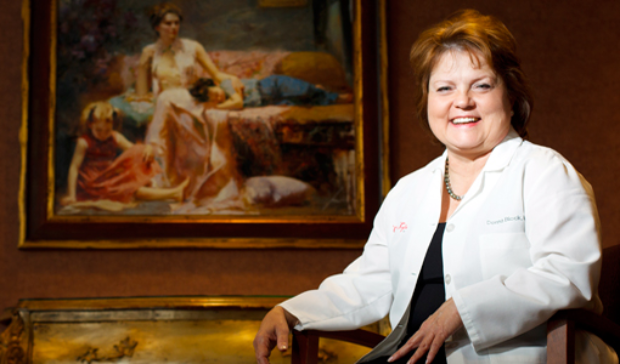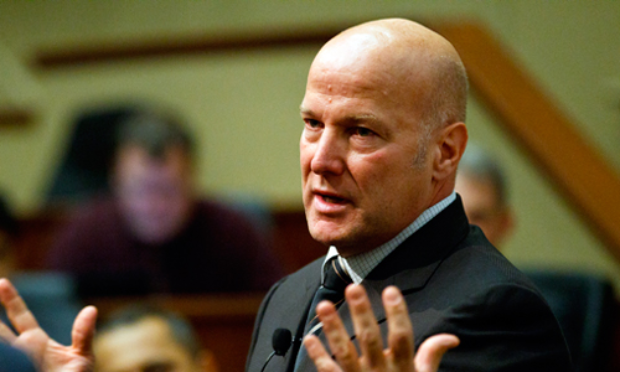Women’s health issues have traditionally been narrowly defined as those specific to the female anatomy and to issues surrounding reproductive health. As late as the early 20th century, a large portion of health concerns brought forward by women were attributed to the catch-all diagnosis of “hysteria,” an ailment which had more symptoms than the common cold and could potentially be cured by bed rest, bland food, seclusion and, most importantly, refraining from taxing tasks such as reading or writing. Laundry, housekeeping, child care and cooking were still permissible.
Today, a rapidly growing number of organizations and practitioners include in the definition of women’s health not only reproductive health, but social and emotional well-being. As defined by the World Health Organization, the topic of women’s health includes biological differences between men and women as well as the study of those illnesses unique to women, more common or serious in women, with distinct occurrences in women, or with different outcomes or treatments in women. Since the 1980s, research on gender differences in health and disease has influenced new treatment and prevention of serious illnesses, including heart disease, stroke, lung cancer and depression.
Clinic Sofia in Edina subscribes to this revised and expanded definition. Launched in 2004 by Dr. Donna Block ’05 M.B.A., the clinic’s mission is to “nurture a community of confident, healthy women,” a mission taken seriously not only by Block, but by the all-woman staff and the clinic’s clients.
The clinic’s name evokes Sophia, the Greek goddess of wisdom, fertility and nurturing. Its waiting room is the first and most visible sign of this mission. Bearing a greater resemblance to a 19th-century literary sálon than a medical office, it is furnished in comfortable couches and lounge chairs. A large bowl of chocolates sits on a side table and soft music issues from a portable CD player. The waiting room also is an exemplar of the clinic’s – and Block’s – approach to business: a carefully crafted, deliberate implementation of disciplined intuition.
A User-Guided Design
Katie Sexe ’10 M.B.A., like many managers of small, independent clinics, wears several hats at Clinic Sofia. Her chief responsibility is overseeing the clinic’s budget, but she also is charged with ensuring the clinic is prepared to accommodate the new Affordable Care Act mandates going into effect in 2012. She handles marketing and public relations for the clinic, a responsibility for which her Evening UST MBA prepared her well. “Everything we do here is based on consumer input and market research, which influences not only how we operate, but our plans to expand.”
The decision to open a second Clinic Sofia in Maple Grove in 2012 was driven by an analysis of the market as well as the connections of the clinic’s newest team member, Dr. Suja Roberts, who has privileges at Fairview Maple Grove. As the only female Indian OB/GYN in Minnesota, Roberts is well-positioned to serve a growing Indian population; census results in 2006 revealed that the Indian population in Minnesota was just over 30,000 and is the second largest Asian community in Minnesota.
It is this focus on market forces that has kept Clinic Sofia financially healthy. But it is the “user-guided design” that has contributed to its growth and reputation. The majority of new patients at the clinic come from referrals. Block has consistently been named as one of the Twin Cities’ top doctors by Mpls./St.Paul Magazine and Minnesota Monthly, and is listed in the Guide to America’s Top Obstetricians and Gynecologists by the Consumers’ Research Council of America. Clinic Sofia was voted best OB/GYN by two suburban newspapers and was ranked number one for overall consumer satisfaction in a survey by Fairview Physician Associates in 2010. These accolades are not a result of mere financial discipline, but of a commitment to service shared by the clinic staff and consistently reinforced by Block.
Treating the Whole Person
Block is the third of four girls in a family from Nebraska. In the sixth grade, she wanted to be a Rockette or a doctor but, like many women of her generation, was told she couldn’t be a doctor. Later, as a junior in a parochial high school, one of the nuns told her she was smart and dedicated enough to do “something” in medicine. So Block pursued an undergraduate degree from the University of Nebraska-Lincoln, majoring in speech pathology and audiology. She also earned her master’s degree in audiology.
It wasn’t until she was in her mid-30s that Block began and completed medical school at the University of Minnesota. She has been an OB/GYN since 1987 and worked in private practice from 1991 until she opened Clinic Sofia in 2004.
For Block, the experience in private practice was less than satisfying. “Every doctor at that clinic was a good doctor,” she recalls. And yet she felt that something was missing in the treatment they provided to clients. “I really wanted to establish an environment where women were not only treated for medical issues but were made to feel that their concerns and fears were heard; I wanted to nurture women. At Clinic Sofia, we take care of the whole person – we are the primary-care providers for many of our patients. We address their cholesterol, genetics, history, etc., but we also make as many referrals to psychologists as internists.”
Treating the whole woman was the impetus behind a conference held by Clinic Sofia in October 2011. “Is this all there is?” attracted more than 200 attendees and focused on the questions, concerns, fears and bonds shard by women as they age. “At about age 40, women start to feel invisible – we heard this more and more from our patients,” says Block. “So we put together this conference to address the physical, psychological and socio-economic changes many of us face at that time.” Proceeds from the conference went to Women Venture, a nonprofit organization dedicated to helping women succeed in business.
A careful attention to the budget allows Clinic Sofia to explore opportunities such as the conference. The hardest challenge they face, according to both Block and Sexe, is ensuring that they provide the best care but also remember it is a business. “If we don’t maintain the business, we can’t provide the care,” Block acknowledges. She goes on to credit the Health Care UST MBA program with her ability to successfully implement and manage what began as a good idea. “What I loved most about the program was the culture. I had been in environments that were very negative and this was stimulating and nurturing. My cohort was made up of administrators and practitioners with diverse experience. That variety helped us develop a common language and has helped me, overall, in the business, by providing an insight into the different perspectives in any situation.”
Building a Shared Culture
Perspectives from each member of the 20-person clinic staff are welcomed each week in Monday morning “huddles,” occasions to make certain each staff member is informed of events and activities. It is an opportunity to share client feedback and propose new ideas or initiatives. And, perhaps most importantly, it is an occasion to reinforce a shared culture. As evidence that the clinic’s culture is just as positive and nurturing as its patient care, five of the eight people who were with Block when she opened the clinic in 2004 still work there. Among these is Debbie Schumacher, head nurse, who also worked with Block prior to joining Clinic Sofia.
The clinic’s success, according to Schumacher, stems from allowing people – both patients and staff – to rise and flourish, and this is a talent Block has had since they first began working together in the 1990s. “She was the first physician I had ever worked with that really cared about patients as whole people. We felt the clinic had a very different philosophy than we did.” This shared philosophy led Block and Schumacher to hold menopause clinics in Block’s home in 1991-92 to help women understand the process because, Schumacher explains, “many doctors just weren’t listening to what women really needed. We felt we provided education and nourishment to their souls.”
No Longer Just Women’s Health
Ask Block about the potential for the Clinic Sofia model to be followed in other cities by other practitioners, and she becomes quite animated. She feels the small, independent model could be implemented for anyone, even for less-affluent patients. The key to success, however, is being disciplined and taking a big picture approach while defining and understanding the qualities and characteristics unique to the clinic’s success. “You have to build the culture to make it effective. Everyone needs to understand the importance of nurturing a healthy woman.” One must also, she is quick to point out, be conscious of and stick to the budget. A strong business sense and clear understanding of the financial picture is just as important as the care provided to ensure the organization remains vital.
Nurturing may sound less clinical than mystical, but the success of the clinic is evidence that this is, indeed, what women want. And what women want in the marketplace is no longer of concern to just appliance makers.
In 2010, women made up nearly 51 percent of the U.S. population. There are twice as many women as men aged 85 or older. In 2008, 55 percent of all U.S. college students were women, and women had a larger share of high school diplomas, associate, bachelor’s and master’s degrees. For the first time in history, women comprise nearly 60 percent of the American workforce.
While once women’s wants – and women’s health – may have been of concern to a very few, they are now of concern to all of us. And while once young women were told they could not be doctors, Block is evidence that they cannot only be doctors, they can be doctors instrumental in shaping the health and well-being of a new generation of leaders.
Read more from B. Magazine







